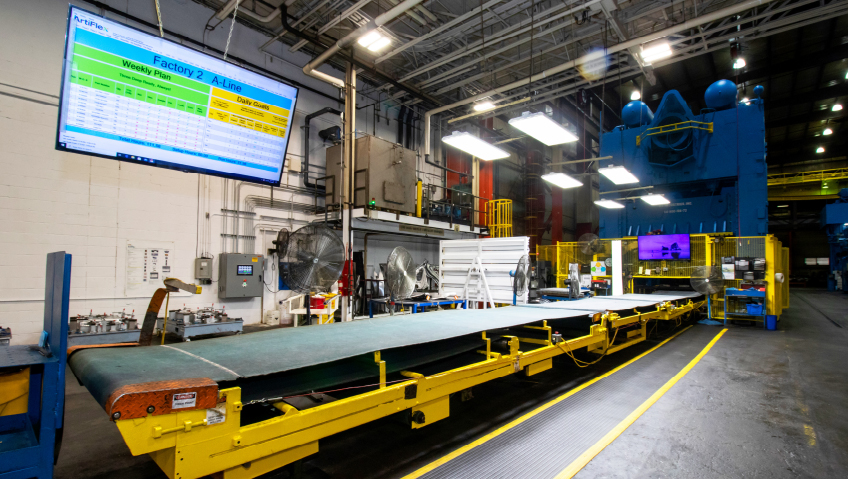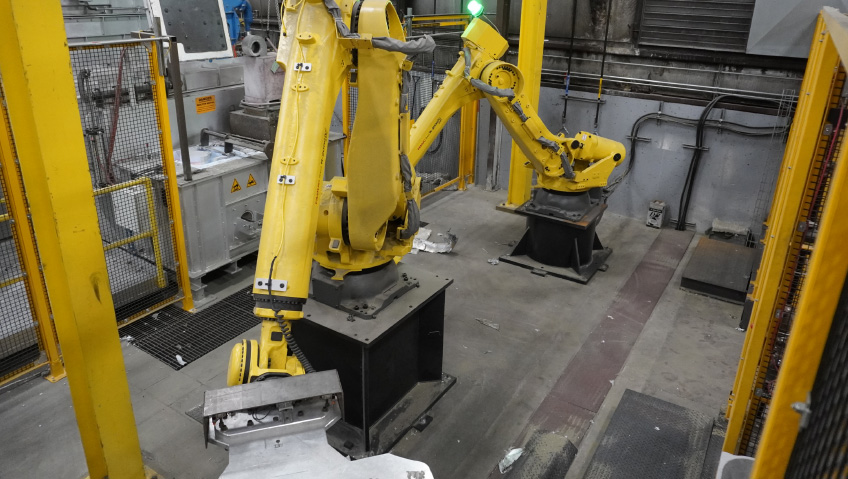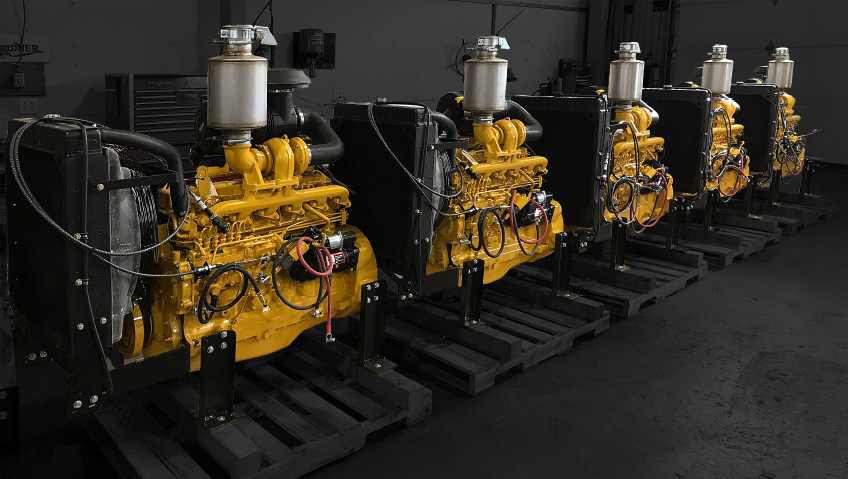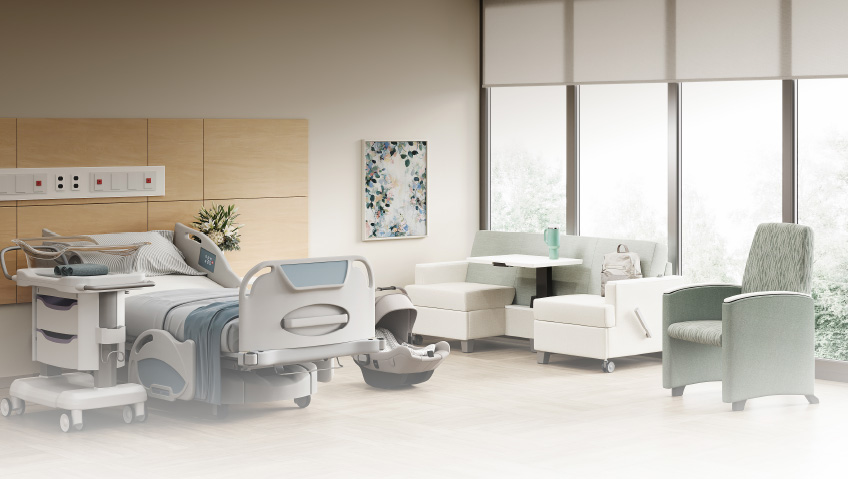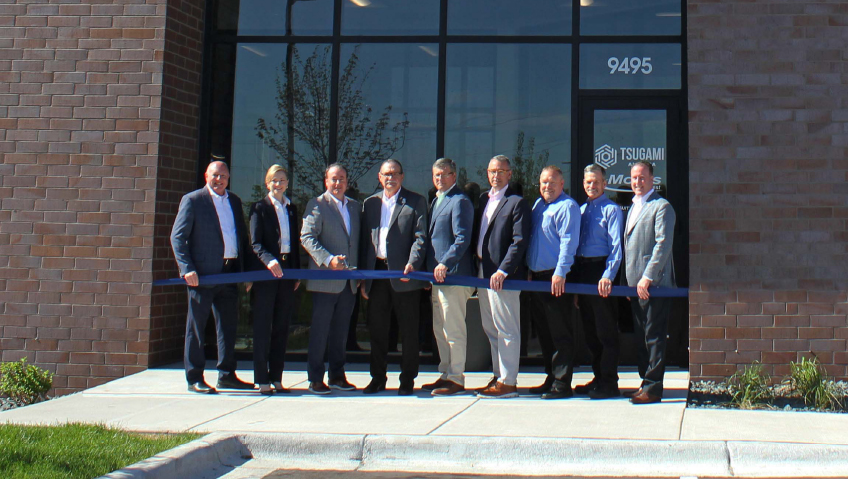From its Grand Rapids, Michigan headquarters, ArtiFlex Manufacturing, an innovative, vertically integrated enterprise, has big plans for growth based on partnerships with other businesses. The firm’s name—an amalgam of artisan and flexible—summarizes its unique approach to design and manufacturing, with the company organized into four groups devoted to innovation, tooling, automation, and manufacturing.
“All of our groups can operate independently. They have their own set of customers and business streams but, combined, we make up ArtiFlex,” explains Marketing and Estimating Manager Lynnette Cowger.
The company’s manufacturing group is based in Wooster, Ohio and brings in the most revenue for the firm, handling stamping, assembly, and e-coating, among other duties. A tooling group in Grand Rapids specializes in tool and die and engineering work while an automation group in the same city designs, builds then installs customized robotic systems, automated machines and packaging and assembly equipment. An innovation group in Rochester Hills, Michigan is responsible for design, development, and engineering. For most projects, the emphasis is on low-volume (under 40k units) production and tooling.
“ArtiFlex is a leader in engineered solutions for large, complex metal assemblies,” states Director of Business Development Steve Delmoro.
In addition to its own work, the company has sufficient capacity and capability to offer factory assist and emergency offload services for clients in need.
Such assistance is provided when a customer “needs a quick turnaround because of a situation in their manufacturing facility. Maybe their press went down; maybe they’re over capacity or have some planned maintenance, or there’s a lack of labor. If a client has an issue and needs to have parts manufactured and they can no longer do it in-house, they can call ArtiFlex,” says Cowger.
Offering a comprehensive array of services has been central to the firm’s success, she continues. In fact, establishing a vertically-integrated operation was the primary reason “why ArtiFlex was formed—being able to be that one supplier for our customers who is involved early in the design of the part or the tooling or assembly system. [We’re] able to contribute to engineering cost-saving ideas and [ideas] for the launch of a product. We work clear through to the end of the product’s life and can provide service parts when production is over.”
Innovation is also central to the company’s vision. To this end, the innovation group “tries to find creative ways to design a product and design manufacturing processes that leverage existing [assets],” says Delmoro.
The company also demonstrates a flair for innovative thinking when it comes to seeking new niches and opportunities. He points to the heavy and mid-sized delivery truck sector as an example. The market for such trucks has grown enormously in recent years, with delivery vehicles from grocery and meal suppliers to Amazon and other companies now sharing the road with established fleets from FedEx and UPS.
“How do you create unique products that support those types of vehicles and align with the needs of the new market?” asks Delmoro. To this end, ArtiFlex developed an expertise in sliding doors, a defining feature of most delivery vehicles. Additionally, EV Battery Trays, Customized Hoods and Doors are also market segments where ArtiFlex is a leader.
The company is equally adept at business dealings, as demonstrated by its relationship with manufacturing partners in Asia. “To participate effectively in tool-and-die build, you’ve got to have partners overseas,” he says.
The company designs and builds stamping tools in Grand Rapids. ArtiFlex also leverages partners in low-cost locales in South Korea and China as needed to meet capacity, cost and timing requirements. Tools outsourced to these partners are manufactured, and then returned home to be completed. This process allows ArtiFlex to reduce costs while maintaining control over design and manufacturing.
This is a relatively new company and is a product of the recession of 2008–2009. During this grim period, Erin Hoffmann, owner of International Tooling Solutions (ITS), began seeking new prospects to boost business and teamed up with the Gerstenslager Company, a venerable Ohio firm owned by Columbus, Ohio-based Worthington Industries.
The Gerstenslager Company specialized in recreational and service vehicles. It made cargo trailers during World War Two and the first Oscar-Mayer ‘Wienermobile’ promotional vehicle. Worthington Industries acquired the Gerstenslager Company in 1997. Fourteen years later, ITS and the Gerstenslager Company partnered in a joint venture called ArtiFlex.
The name was chosen to reflect the fledgling company’s commitment to artisan-level quality and a flexible approach. Today, ArtiFlex has ISO 14001 environmental, ISO 9001:2015 quality, and IATF 16949 quality certifications, the last being standard for working in the automotive industry. “Quality is built throughout all of our processes and systems. We use the IATF standards to guide our business processes,” states Cowger.
Flexibility, meanwhile, entails “leveraging the talent, resources and equipment we have to come up with a solution,” says Delmoro.
The company has launched a growth initiative called Body by ArtiFlex which is based around potential partnerships. The client provides a design, and ArtiFlex provides enhanced support to bring the design to market economically. The program is geared towards customers who want to market a product quickly, but not in massive volumes.
The automotive industry, one of the main sectors in which it works (along with appliances, trucks, and agriculture), is the key target market. The company hopes the initiative will garner new assignments from traditional automakers and start-ups alike.
“We want to partner with the right customers. There are many low-volume [electric vehicle] start-up companies, but there are also many traditional [original equipment manufacturers] that want to bring a low-volume derivative product to the market,” says Delmoro.
Even as Body by ArtiFlex gets underway, the company is still coping with the lingering effect of COVID-19. It operates within an essential industry, so the company did not have to stop its manufacturing when the pandemic struck. The company responded quickly to the virus, forming a task force, introducing social distancing and other health measures, and sending some employees home to work remotely.
“COVID has been hard on everyone, but ArtiFlex weathered the storm fairly well. We are looking forward to continued profitability,” states Delmoro.
The company took time during the pandemic to “really improve the look and feel of our operations. We restructured some of our plant layouts and gave the plants facelifts, so to speak. We really take pride in what our operations look like,” says Cowger.
With most trade shows and industry events closed, it “increased our social media presence, trying to get more engagement with our company Facebook page and LinkedIn page. We’ve updated our YouTube page to include more in-depth reviews of what each of our facilities look like, highlighting all our capabilities,” she continues.
The firm’s efforts were recognized by Smart Business magazine, which gave ArtiFlex a 2020 Evolution of Manufacturing Award. “One of the driving factors behind that award was being able to come out of the COVID pandemic and being able to still maintain profitability and key personnel through very challenging times,” states Cowger.
ArtiFlex presently has 556 employees across all its companies, versus nearly 900 this time last year. Currently in hiring mode, it has certain prerequisites in mind for potential new employees.
“We don’t want someone who wants to come in for two weeks, grab a paycheck, and leave. There is significant training, there is significant upside [for employees] with profit sharing and 401(k) benefits. We’re looking for team members for the long term. We offer growth opportunities. [An employee can go] from being a manufacturing operator to a technician to a robot operator to tooling. We also pay competitive wages,” says Delmoro.
The company likes employees who demonstrate “a problem-solving mentality—being able to address an issue, come up with a solution on your own, or at least bring a solution to the table for review,” adds Cowger.
In similar fashion, the company always keeps an eye out for new equipment or technology that might enhance operations or allow it to take on new services. ArtiFlex utilizes 3D printers, for example, and is planning to acquire additional high-speed, five-axis laser machines.
Despite the team’s workload and ambitious growth agenda, they still manage to make time for charity and community events. The company is hosting its second annual car show this September to benefit the Wooster, Ohio Boys and Girls Club. In addition to showing off various vehicles, the event will feature plant tours for residents of Wooster.
“A lot of time, in a large manufacturing town, nobody knows what’s inside the walls. Somebody who looks at a car today doesn’t know a 1,000-ton press that made the fender,” says Delmoro. The plant tours in Wooster are further evidence of the company pride shown by ArtiFlex employees, and the company forecast is also bright.
“We’ve been working hard to be stable and profitable. Those are two main tenets in our mission statement, and the third is growth. Once stable and profitable, you have that ability to grow. We are looking to expand with current customers, expand with new customers, and see where all our capabilities can take us,” says Cowger.

